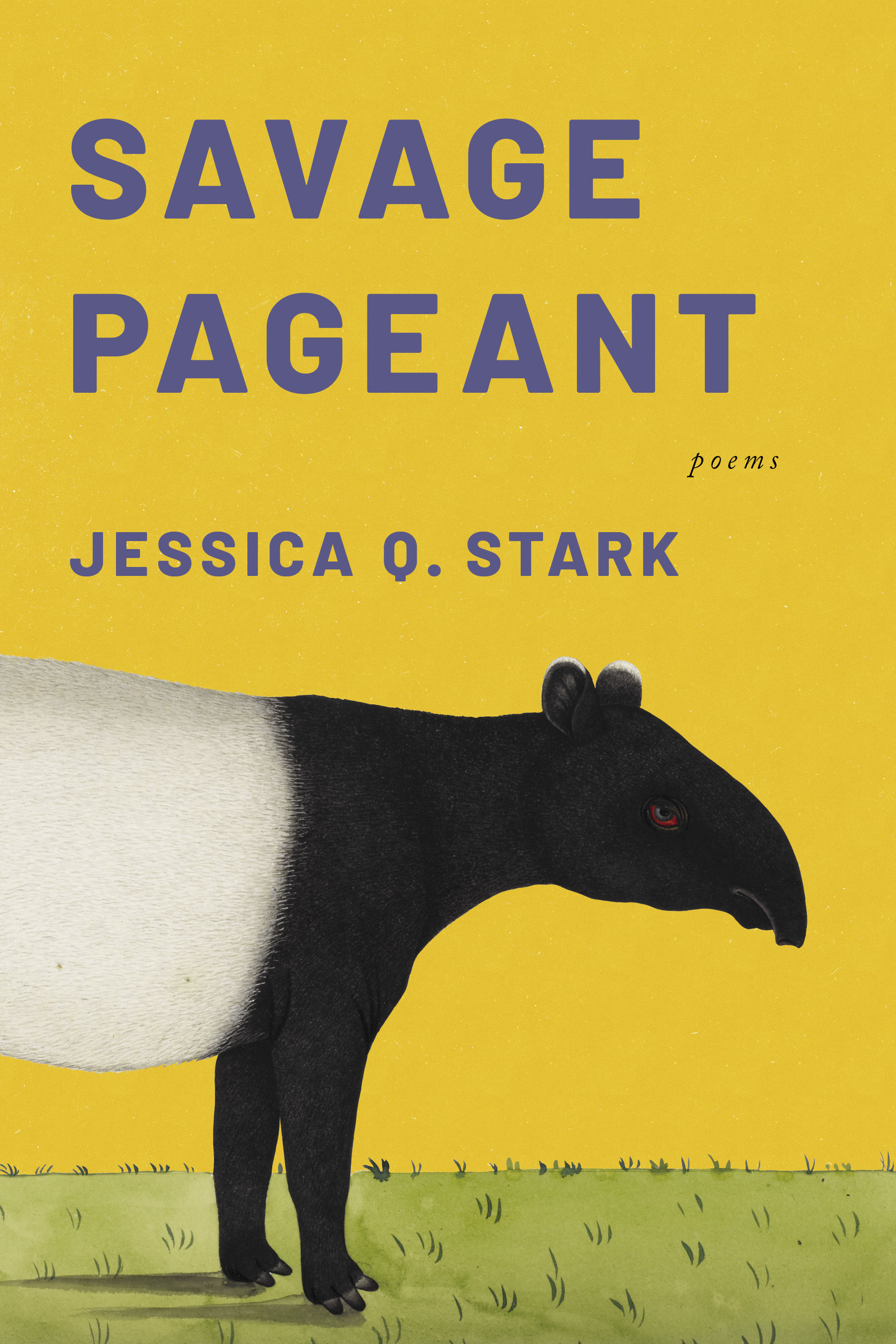

Savage Pageant
Jessica Q. Stark
Savage Pageant recounts the history of the defunct zoo, Jungleland, which housed Hollywood's show animals up until its closure in 1969. In it, Stark explores the concept of US American spectacle and its historic ties to celebrity culture, the maternal body, racist taxonomies, the mistreatment of animals, and ecological violence. With a hybrid, documentary poetics, Savage Pageant reveals how we attempt to narrate and control geographical space and how ghosts (remainders, the sketch, unfinished stories) collapse the tidy corners of our collective, accumulative histories.
What People Are Saying
Bhanu Kapil
Jessica Stark's Savage Pageant is a map, an "undulation," a "fold," something lightly sketched then traced on "something blackened, worn-out, and organized." Stark's brilliant move in this powerful new work is to problematize the paper itself: the surfaces that receive the many marks that a poet, an inhabitant, an animal, an archivist or an audience-member might make. What a brilliant writer. What a lovely and strange book.
Dorothea Lasky
Part poetry book, part collection of private, personal, and public histories, part summons, part rune, this book takes you headfirst into the other world where all you can do is swim past your own hurt and traumas into the sunshine hole of the unreal. It's a book we must remember as we begin to forget ourselves. I'll risk it all to say that we need this book for all of time, to take with us as a guide from here until the everlasting, because, as this book says to us, "We are only here for a/ short time."
Vi Khi Nao
The body of poetry needs a new script, and Jessica Q. Stark is more than happy to oblige. At the height of her multi-tasking, birthing simultaneously son and book, she holds you captive with her carnival performance of ingenious gestures, where language and motherhood play informal games of anatomic brilliance and take you through her sanitary mayhem of pandemoniac beauty and birth.
Inside the Book
- Category:
- Poetry
- Binding:
- Perfect Bound
- Dimensions
- 6" X 9"
- Publication Date:
- March 2020
- ISBN:
- 9780982617731
Reviews
- Vi Khi Nao
From the Book
Ariel
— With hair up-staring—then, like reeds, not hair— Was the first man that leaped, cried, “Hell is empty And all the devils are here.” —Shakespeare’s The Tempest
Darkness grew a little finger
and led the company
of men into the sea. Driven mad with
the after-places of memory:
the trace substance, the years
of sleep roused by the crack.
There was nowhere else to go
but over they cried.
There were no instructions on
how to create an illusion.
So swiftly inside a storm they recall:
a spirit released from prison
for service was still a
prisoner. The ship and its rich
garments were breaking apart.
The Burn Pits
It is possible to not know what lies
underneath your skin.
The smell of gas, a minor accident—
say fuel element failure.
We touch the pieces of dried grass
on our descent, gather
back together a bundle in place
of a vocabulary for names.
The great misstep, the human element:
defect as communal birthright.
And how to remember what was
never written? The memo
recommends departure, the memo
suggests trace substances
still in the hold—hold them still
leaking on roofs over tongue.
A stubborn breed, this animal. The
only retribution: unforeseen fire.
We pour our mistakes into black pits,
close the lid, and hope that the
smoke story might not reach the frontal
lobes of chain-link and ashtray.
We drink the water, we brush
our teeth with the water,
and force another match into
flame now growing dim by the
march of palms. No time to put it
out and no time to waste on
exit music. There is a rumor I
shouldn’t tell you, but I will.
Count your hands by syllables,
divide what’s left by the root.
We are not who we say we are and
the farther we go back, we’re
tracing blood—filling bodies with
this chemical breath, sending out
piecemeal parcels of well-lit verbs.